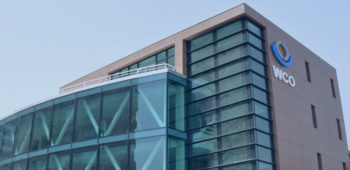
To aid trade, build capacity and ensure ease of doing business at the ports, the World Customs Organisation (WCO) severally hold workshops to sensitise Customs organisations on the need for trade facilitation.
The 8th Session of the World Customs Organization (WCO) Capacity Building Committee (CBC), which just ended, harped on trade facilitation agreement (TFA) and capacity building among Customs bodies in different countries.
Nigeria is regarded as one of the countries where trade is restricted rather than facilitated. Importers and clearing agents in Nigeria believe that the Nigeria Customs Service (NCS) encourages corruption at the ports and have helped frustrating trade by their actions.
National Association of Government Approved Freight Forwarders (NAGAFF) said recently that by conduct the Nigeria Customs Service portrays itself as the most corrupt agency in the world.
The Association said that “The Nigeria Customs Service arbitrarily gives itself revenue targets officially and unofficially. While the official revenue targets are declared publicly, unofficial revenue targets are for their personal purses.”
Also some stakeholders think that Nigeria Customs thinks that Nigeria Customs lacks the required competence which was why the newly acquired scanners from service providers did not take long before it all packed up.
An importer, Nnamdi Okeke told SHIPS & PORTS DAILY that the scanners were destroyed by the Customs officials because they lack the competence to handle them. Besides he said that because most of them are bent on making money for their purse, they prefer physical examination and will not want the scanners to work.
He believes that the Customs officials need further training and should understand the importance of trade facilitation if the country must benefit from the role it plays at the port.
The 8th Session of the World Customs Organization (WCO) Capacity Building Committee (CBC) brought together more than 230 delegates from Customs administrations, WCO regional structures (ROCBs and RTCs), international organisations, academia and the private sector organisations.
It presented another opportunity for the NCS to learn from the global body. The first day consisted of a Joint Session with the 7th Meeting of the WCO Trade Facilitation Agreement Working Group (TFAWG). The opening address by the Deputy Secretary of WCO, Sergio highlighted the significance of the joint session and stressed renewed momentum for implementation of the TFA that entered into force on 22nd February 2017.
The key note address by the Ambassador of Brazil to the EU, Everton Vieira Vargas, on reinforcing the linkages between trade facilitation and capacity building in the context of stakeholder engagements set the tone for subsequent discussions that focused on implementation of the TFA.
The Joint Session also endorsed the Mercator Programme’s future operating modalities and delivery plan to further optimize the technical assistance to Members that requested the WCO for support in implementing the TFA.
The CBC also discussed challenges and opportunities of trade facilitation in fragile environments like Nigeria and acknowledged WCO initiatives aimed at contributing to strengthen the capacity and role of customs in re-establishing security and facilitating trade in these areas.